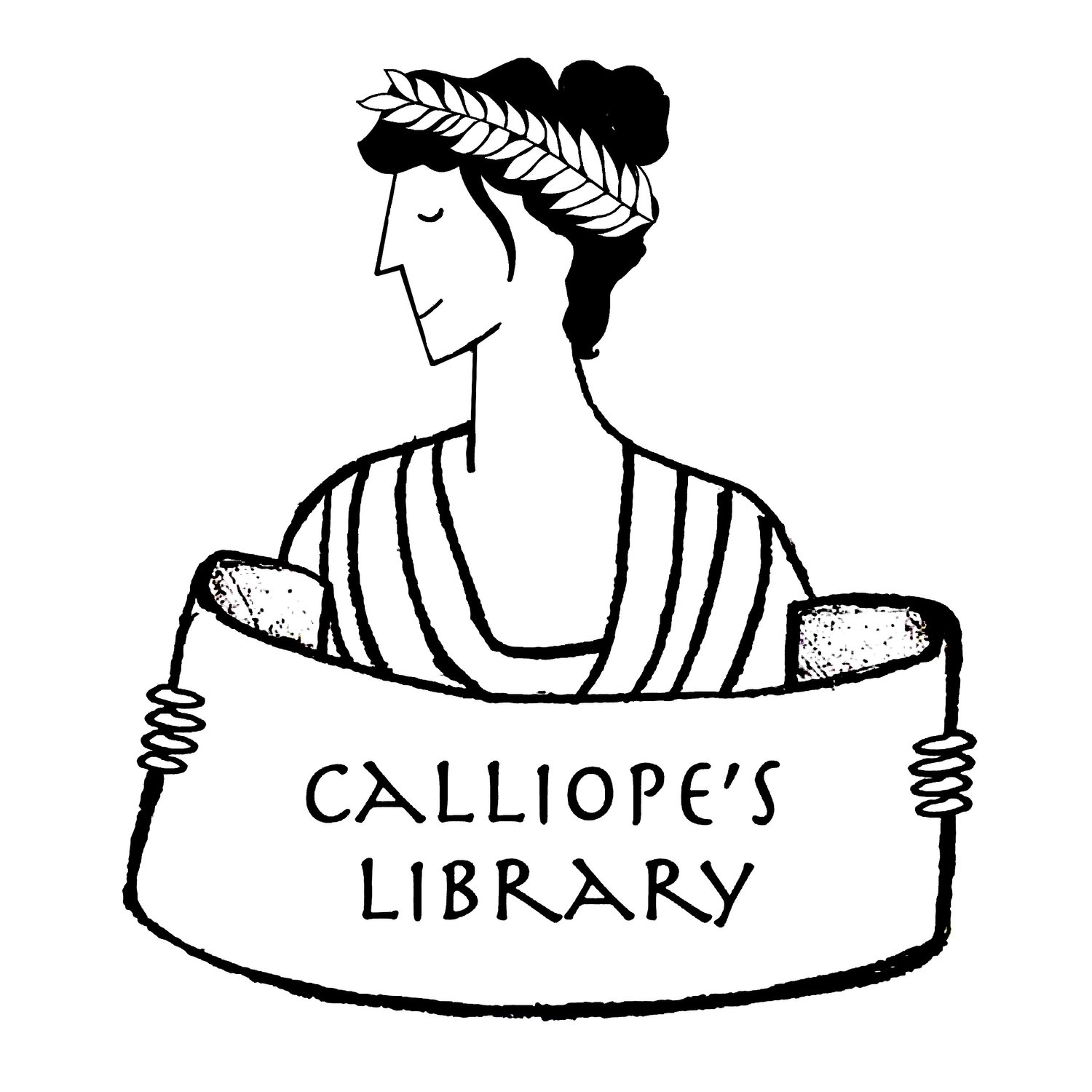Title: The Olympians: Apollo: The Brilliant One (vol. 8)
Author and Illustrator: George O'Connor
Date: 2016
Tags: Young adult, Graphic novel, Mythology, Apollo, the Muses, Python, Daphne, Hyacinth, Asklepios, Ancient worlds, Racially/Ethnically diverse, LGBTQIA+, English
Readers interested in a scholarly approach to children’s literature may consult this title on Our Mythical Childhood Survey*
The eighth installment of George O’Connor’s Olympians series is a collection of the exploits and loves of Apollo, narrated by the nine Muses. Each Muse takes a turn as storyteller, sometimes alone, sometimes in pairs. Most of the major myths about Apollo’s life are recounted in chronological order: his birth on Delos, his slaying of the Python at Delphi, a few of his many doomed love affairs, and even his musical showdown with the satyr Marsyas, gruesome ending and all.
This time, O’Connor got extra creative with the form of his stories, and the narrative voice of each Muse matches her expertise. Clio, Muse of history, recounts the life of Apollo’s son Asklepios with appropriate annotations, while Euterpe, Muse of lyric poetry, describes Apollo’s pursuit of poor Daphne in iambic couplets as Terpsichore, Muse of dance, provides a choral counterpoint. Erato, Muse of love poetry, borrows Sappho’s style for Apollo’s tragic romance with the Trojan youth Hyacinth.
The picture that O’Connor gives of Apollo is not a flattering one. He is brash and vindictive, quick to anger and seldom kind. O’Connor is aware of the fact, and he embraces it as a reflection of the inherent humanity of his subject, even as Ourania, Muse of astronomy, celebrates Apollo’s connection with the celestial bodies and the constellations. The result replicates the harsh realities of the original myths while still leaving space for the reader to understand and sympathize with the main character. I would recommend that responsible adults vet this volume before handing it over to more sensitive readers, though. As mythology lovers know, Marsyas’s story in particular is not for the faint of heart. – Krishni Burns
* For further information on the Our Mythical Childhood Survey, please refer to the website of the project “Our Mythical Childhood” [link: http://omc.obta.al.uw.edu.pl/], led by Prof. Katarzyna Marciniak at the Faculty of “Artes Liberales,” University of Warsaw, Poland, with the participation of Bar Ilan University, University of New England, University of Roehampton, University of Yaoundé 1, and other affiliated scholars, within the funding from the European Research Council (ERC) under the European Union’s Horizon 2020 Research and Innovation Programme (grant agreement No 681202).














